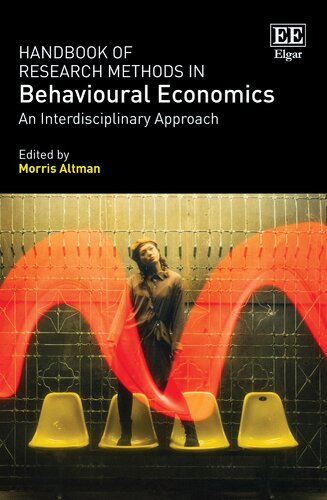

Most ebook files are in PDF format, so you can easily read them using various software such as Foxit Reader or directly on the Google Chrome browser.
Some ebook files are released by publishers in other formats such as .awz, .mobi, .epub, .fb2, etc. You may need to install specific software to read these formats on mobile/PC, such as Calibre.
Please read the tutorial at this link: https://ebookbell.com/faq
We offer FREE conversion to the popular formats you request; however, this may take some time. Therefore, right after payment, please email us, and we will try to provide the service as quickly as possible.
For some exceptional file formats or broken links (if any), please refrain from opening any disputes. Instead, email us first, and we will try to assist within a maximum of 6 hours.
EbookBell Team

4.3
18 reviews
Presenting analytical narratives from renowned economists and economic psychologists, the Handbook applies a broad array of methodological perspectives to behavioural economics. These span from bounded rationality, asymmetric information, and heuristics and biases to fast and frugal heuristics, rational agents and smart decision-makers, and capabilities improvements and institutional design. Chapters further explore diverse areas such as public policy, micro and macroeconomics, labour economics, the firm, decision-making, preference formation, punishment, love, altruism, trust, the environment, money and finance, health, and sports. Providing a pluralistic approach to behavioural economics, the Handbook ultimately introduces readers to an array of possible methodologies that can be adopted to address topical economic issues, as well as facilitating an enriched and nuanced understanding of human behaviour in an economic context.
Comparing and contrasting different methodologies within behavioural and neoclassical economics, this dynamic Handbook will be an invaluable resource for undergraduate and postgraduate students enrolled in economics, social psychology, and marketing courses. Policymakers will also benefit from its examination of the implications of behavioural economics for real-world decision making and policy.